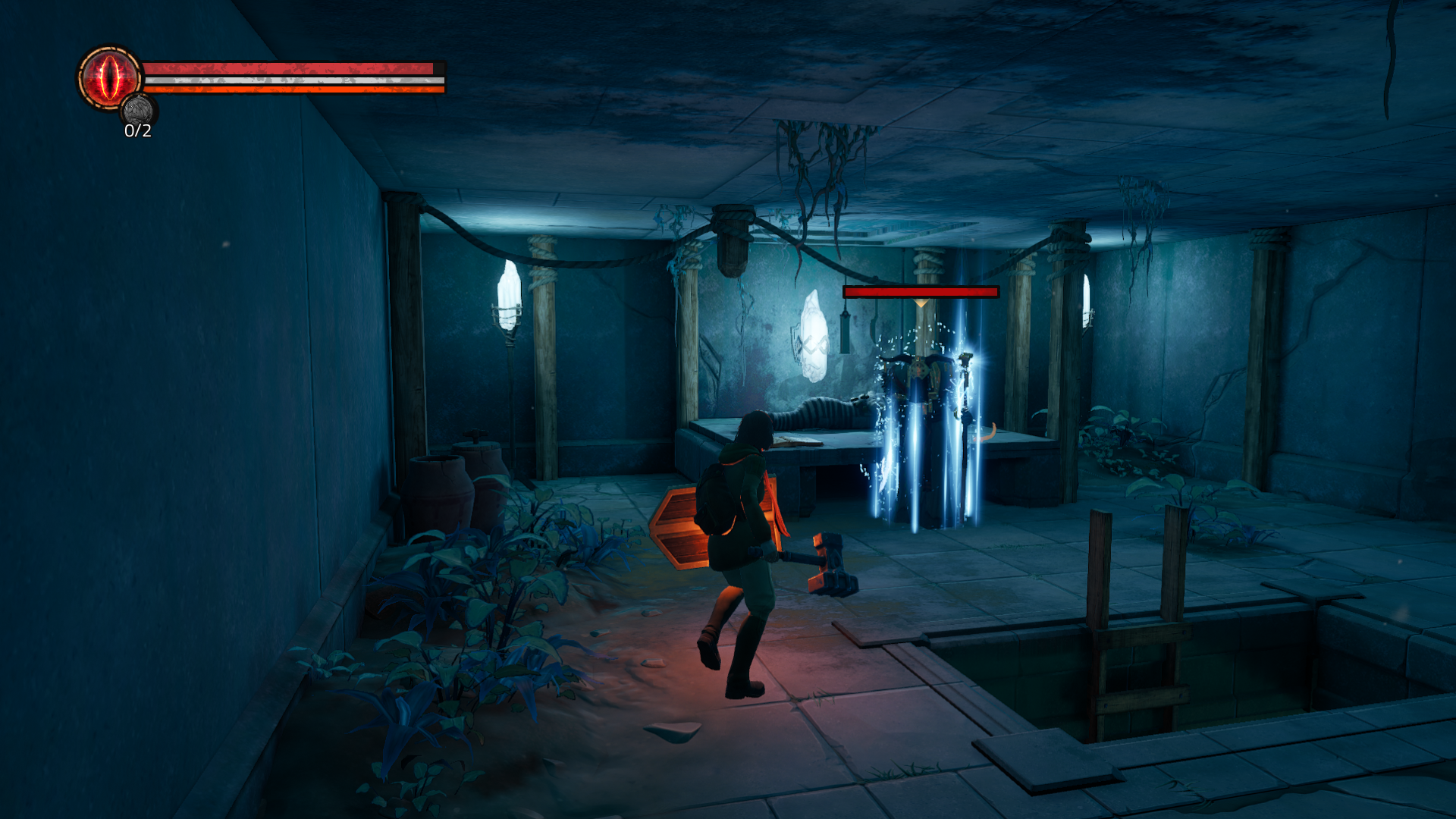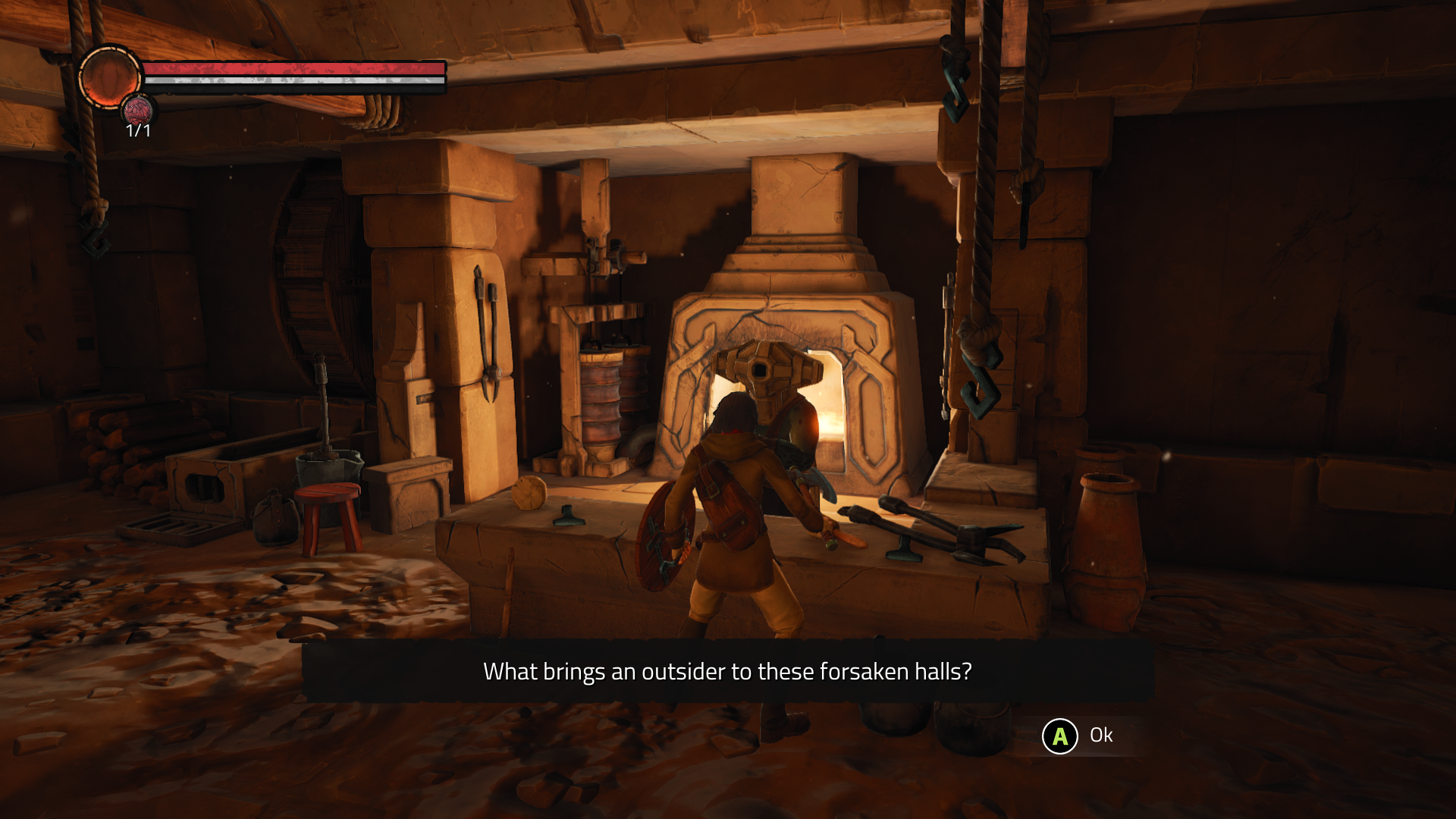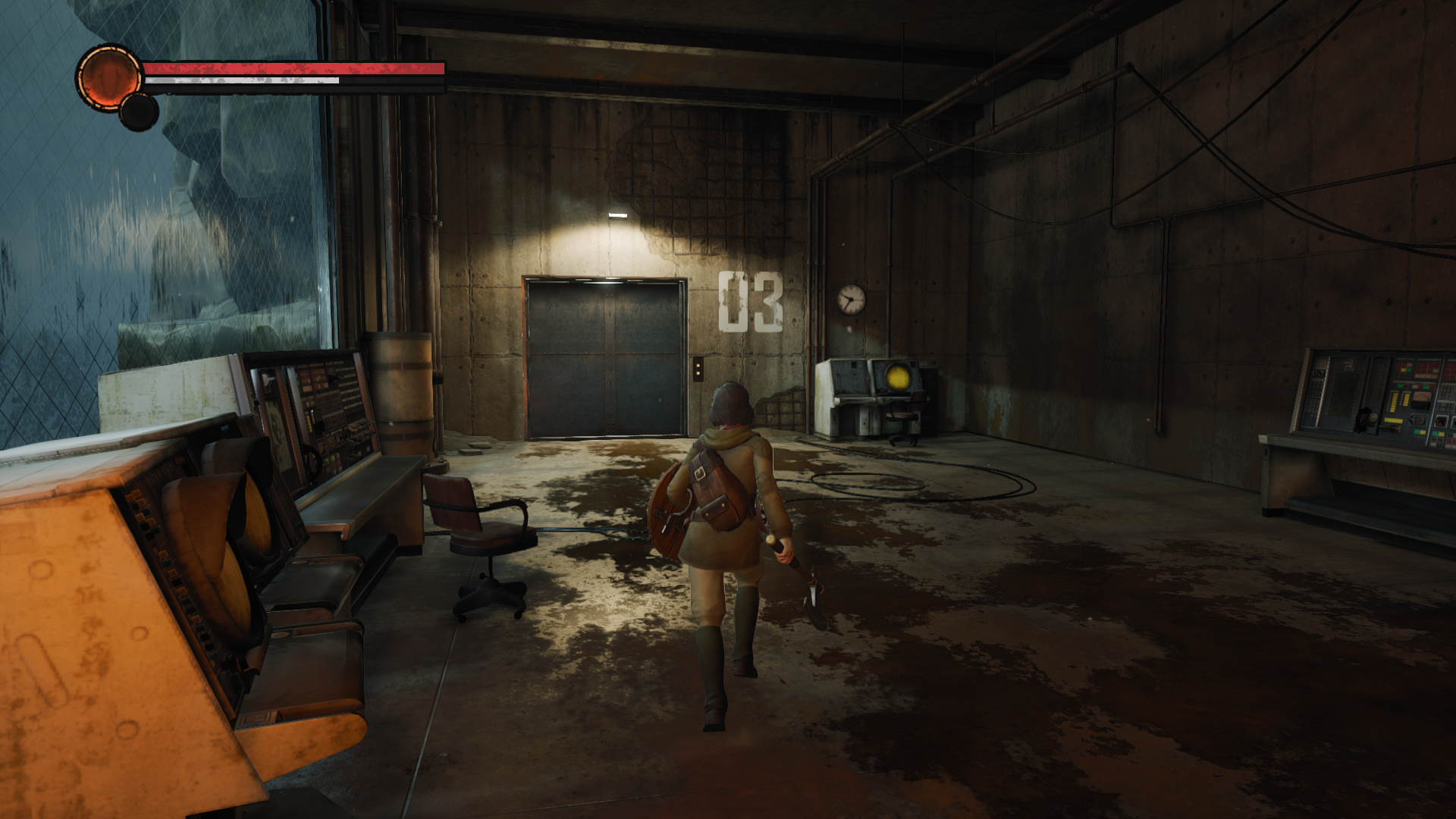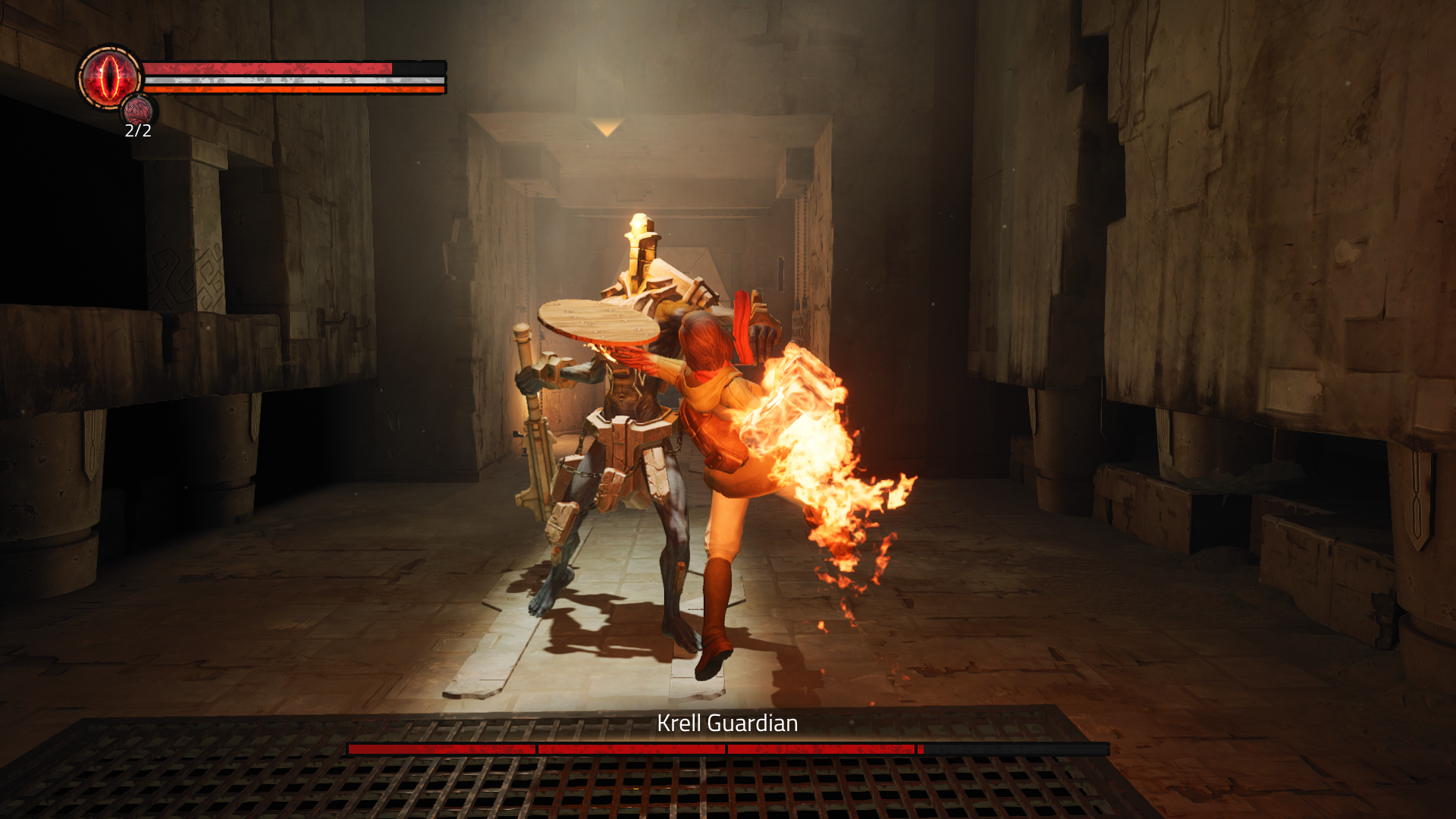Our Verdict
A great example of how to craft a new game from an existing idea.
PC Gamer's got your back
What is it? Dark Souls, but less so.
Expect to pay: $30/£27
Developer: Gunfire Games, THQ Nordic
Publisher: THQ Nordic
Reviewed on: GeForce GTX 1650, AMD Ryzen 5 3550H, 8 GB RAM
Multiplayer: No
Link: Official site
You’d be forgiven for being sick of the phrase 'it's like Dark Souls', but… Chronos is like Dark Souls. A bit. The similarities are clear in the combat and audio design, but Chronos treats the high frequency of death differently than the Souls games, with a cool, though under-utilised, ageing system and less punishment. Indeed, this is much friendlier than any Souls game. Gitting gud is optional.
Of the three difficulty options (so, definitely not a Souls game), the lowest allows you to cruise through with relative ease. It's clearly not the way to make certain systems shine, but allows a wide range of people to enjoy other parts of Chronos. Difficulty is locked in once you've started your game though, which makes it hard to experiment to find what's right for you.
While fans of Remnant: From the Ashes can enjoy plenty of prequel references here, Chronos stands just fine on its own. Living in a post-apocalyptic world with a whiff of Nier about it, you're sent through a portal into a fantasy land to find and slay a dragon. Of course, things aren’t quite as simple as that.
On anything but the lowest difficulty, you can expect to die dozens of times before the credits roll. The melee combat, which varies slightly depending on the weapon and shield combo you use (which will likely change as you find and upgrade items), leaves little room for error. What this also means, though, is that working out a technique to cut through an enemy type that previously flattened you is immensely satisfying.
Growing up
Each time you die, you respawn at a World Stone, which doubles as a fast travel point. You come back a year older, something that pays off every ten years starting at age 20 (you begin at the disgustingly youthful age of 18). At these times, you get to choose a Trait such as increased health, defence, or parrying window. There’s still a traditional system of XP and attribute points, the success of which is mixed.
The idea is that this ties into the ageing mechanic, so that in your twilight years, magic becomes much more important to your character than strength and agility. Playing on the middle difficulty, I finished the game in my early fifties, and saw no signs of this in my character. If anything, I regretted the points I’d invested in Arcane. The eventual effects that age has on your character is a great idea, but I imagine only a minority of players will get to experience it. Nice to know that I’ll still be able to wield a sword and hefty shield at the age of 53, though. Heavy bags of shopping should be a breeze.

Still, the game that buries this ageing system is a good one. Combat, while immediately familiar to anybody who’s played one of the From Software games, strikes an excellent balance between skill and punishment. Slipping up doesn’t mean you’ll immediately be destroyed, but if you get sloppy, you certainly won’t last long. There’s a decent range of enemies, too, most of which require slightly different tactics to beat.
The majority of the game takes place in and around a castle. Like Dark Souls, you’ll be opening up shortcuts as you go to minimise backtracking. Unlike Dark Souls, these shortcuts are generously (arguably better) placed, which helps ensure the experience never feels repetitive or unfair. Death is less of a punishment, too. You lose nothing on respawn, and although health items are rare, any you’ve used will be refilled.

Kicking ash
The story and atmosphere hold together well for the most part, with clear highs and lows. At times, Chronos can feel like a brilliant interactive fairytale. I won’t soon forget being shrunk to the size of an ant, battling clockwork enemies against a soundtrack of booming footsteps from the enemy outside the bookcase we were fighting in. Travelling through mirrors, and stepping into a painting? I love it. But these are standout moments in a game that spends most of its time pulling you through corridors, caves, and courtyards.
There are a small number of NPCs that are happy to talk rather than fight, but they’re painfully underused, and also act as a reminder that the number of optional objectives can be counted on one hand. Perhaps I’m just bitter that one of them sets three simple riddles, one of which I got wrong by accidentally clicking the wrong answer. Reloading the checkpoint didn’t let me have another go. Now that is pain.

There are puzzles sprinkled throughout the experience, though they aren’t really the game’s strong point. Many are pleasingly simple, some are a little too simple, one I’ve solved twice without understanding precisely how, and one is a sliding tile puzzle. A sliding tile puzzle? What is this, a 21st century videogame, or a Christmas cracker prize?
Then there are the bosses and mini-bosses. While a few are fun to defeat once you work out how best to counter them, generally they’re not actually as fun to fight as the regular enemies. The final boss in particular is a bit of a mess, defying all my attempts at a graceful victory. By the time its health was down to the final tenth or so, I was just desperately hammering the attack button, (correctly) estimating that my remaining health would outlast theirs.
It’s a slightly shaky project, then, as hinted at by the fact that it’s not the prettiest PC game you’ll ever play. All credit to Gunfire Games, though, for trying to build on the Dark Souls template rather than just borrow it. The result is a game with a strong identity of its own. It’s just a shame the ageing system doesn’t kick in much earlier.
A great example of how to craft a new game from an existing idea.


